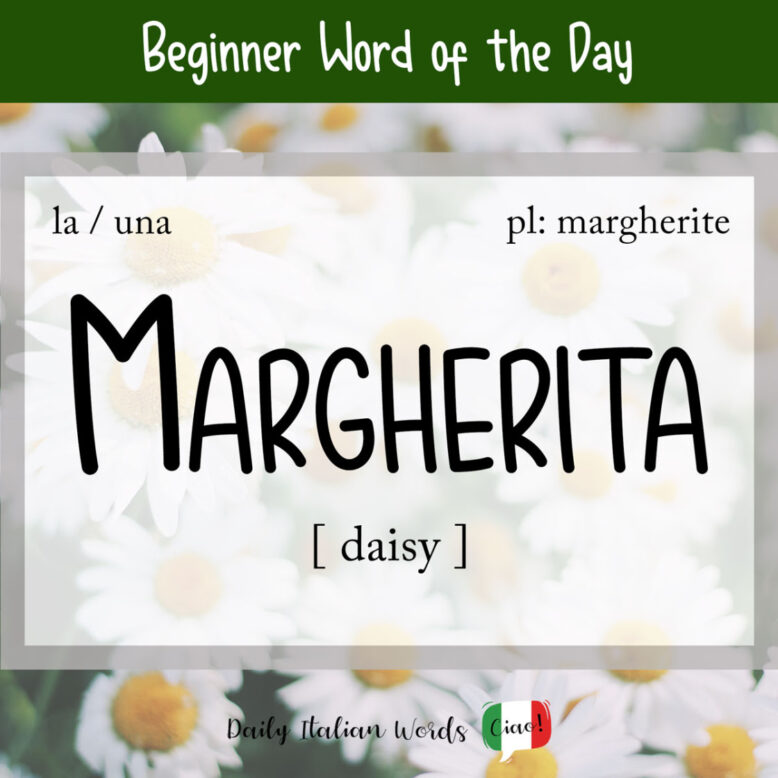The word for daisy in Italian is margherita (feminine, plural: margherite). It derives from the Greek margaritis but entered the language via the Latin margarita.

Although many flowers (fiori) belong to the margherita family, the two that are considered the archetypal species of that name are the margherita diploide (oxeye daisy) and margheritina comune (common daisy). Both are characterised by a bright yellow floral disc surrounded by long white petals.
La bambina ha raccolto una margherita e l’ha messa nei capelli.
The little girl picked a daisy and put it in her hair.

Like the English equivalent, Margherita is a female name in Italian. One of the most famous women of this name was Margherita of Savoy, the Queen consort of the Kingdom of Italy by marriage to Umberto I. In her honour, the following foods were named after her:
- pizza margherita = a type of Neapolitan pizza topped with mozzarella, basil and tomato, designed to reproduce the tricolour flag in honour of the queen’s visit to Naples
- pasta margherita = a sweet, soft dough similar to sponge cake
- torta margherita = a sponge cake or poundcake made from said dough
A nodo margherita (sheepshank knot) is a special knot used by sailors to shorten a cord without cutting it, whereas a punto margherita is a kind of simple embroidery stitch. A daisy chain is known as a ghirlanda di margherite (lit: wreath of daisies).
Finally, let’s talk about an idiomatic expression that isn’t easily found in dictionaries: andare per margherite. It means to go into a field full of daisies but there isn’t a simple English equivalent.
You can hear it in motorsports to indicate that a driver has gone off track. It refers to the green grass that can be seen outside of the tarmac racing surface. The first time my husband heard this expression was when he was watching a Formula 1 race and the Italian commentator said something along the lines of:
Schumacher è sempre in testa con dieci secondi di vantaggio e… Oh, intanto Jean Alesi va per margherite.
Schumacher is still leading with a 10 second advantage and… Oh, meanwhile Jean Alesi is going off track.
It is also used when talking about mountains and the absence of snow, like in the example below:
Se non nevica quest’anno, andremo per margherite invece di sciare.
If it doesn’t snow this year, we’ll walk on daisies rather than ski.
Heather Broster is a graduate with honours in linguistics from the University of Western Ontario. She is an aspiring polyglot, proficient in English and Italian, as well as Japanese, Welsh, and French to varying degrees of fluency. Originally from Toronto, Heather has resided in various countries, notably Italy for a period of six years. Her primary focus lies in the fields of language acquisition, education, and bilingual instruction.


